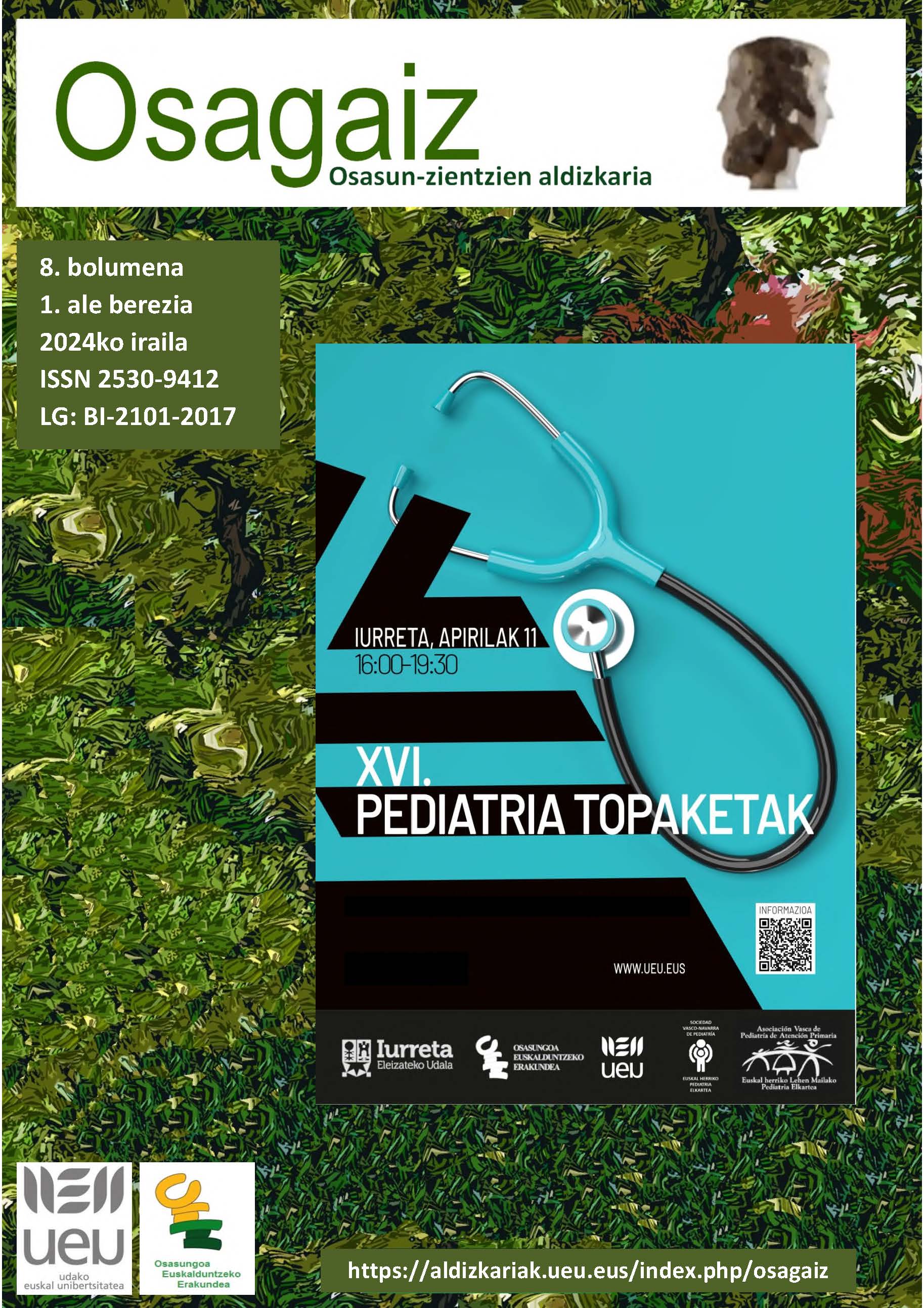Laburpena
Kontsultako denbora-tarte mugatuan pediatrak kontuan izan ohi du haurrarekin batera kontsultara etorritako guraso/tutoreak haurrari buruz esaten diona. Izan ere, osasuneko profesionala izan ez arren, haurraren portaeraren lekuko eta behatzaile pribilegiatua izaten baita askotariko momentu eta egoeratan. Probetxuzkoa izan daiteke pediatrarentzat haurraren hizkuntza-trebetasunaz guraso/tutoreak kontatzen diona ere haurrak ulertzen eta esaten dakizkien (edo ez dakizkien) hitz askoren berri-emaile egokia izan daitekeen neurrian. Ezagutza hori jasotzeko estandarizatutako tresnak urriak dira, are gehiago euskaraz. Artikulu honetan 1-4 urte bitarteko haur euskaldunen euskarazko ezagutza lexikoa neurtzeko Komunikazio Garapena Neurtzeko Zerrenda edo KGNZ tresnaren bertsio laburren berri ematen dugu, guraso/tutoreek erraz eta azkar betetzeko diseinatutako hiru galdetegiren berri, alegia: KGNZ-1lab (8-15/24 hilabete), KGNZ-2lab (16-30 hilabete) eta KGNZ-3 (30-50 hilabete). Tresna estandarizatu horiek haur bakoitzaren hiztegi-ezagutza zein pertzentiletan dagoen jakiteko aukera ematen dute, hau da, haurrak bere adinkide gehienen pareko hizkuntza-garapena duen edo atzerapen-zantzuren bat erakusten duen. Pertzentil-taulak Euskal Herriko 8-50 hilabete bitarteko haur-lagin handi batean oinarrituta daude eta hilabete edo bi hilabetekako adin-talde bereko haurrekin alderatzeko aukera ematen dute. Bi haurren adibideak baliatu ditugu KGNZ-1lab tresnarekin jasotako emaitzak nola interpretatzen diren erakusteko.

This work is licensed under a Creative Commons Attribution-NonCommercial 4.0 International License.
Copyright (c) 2024 Maria José Ezeizabarrena, Aroa Murciano, Iñaki Garcia Fernandez

